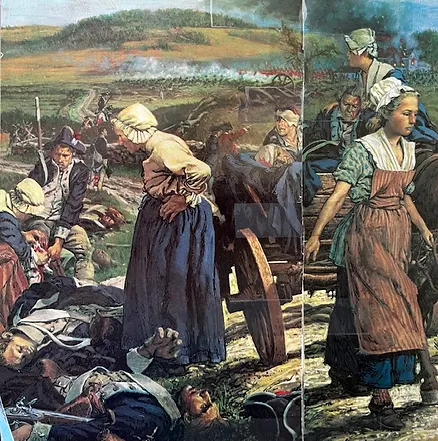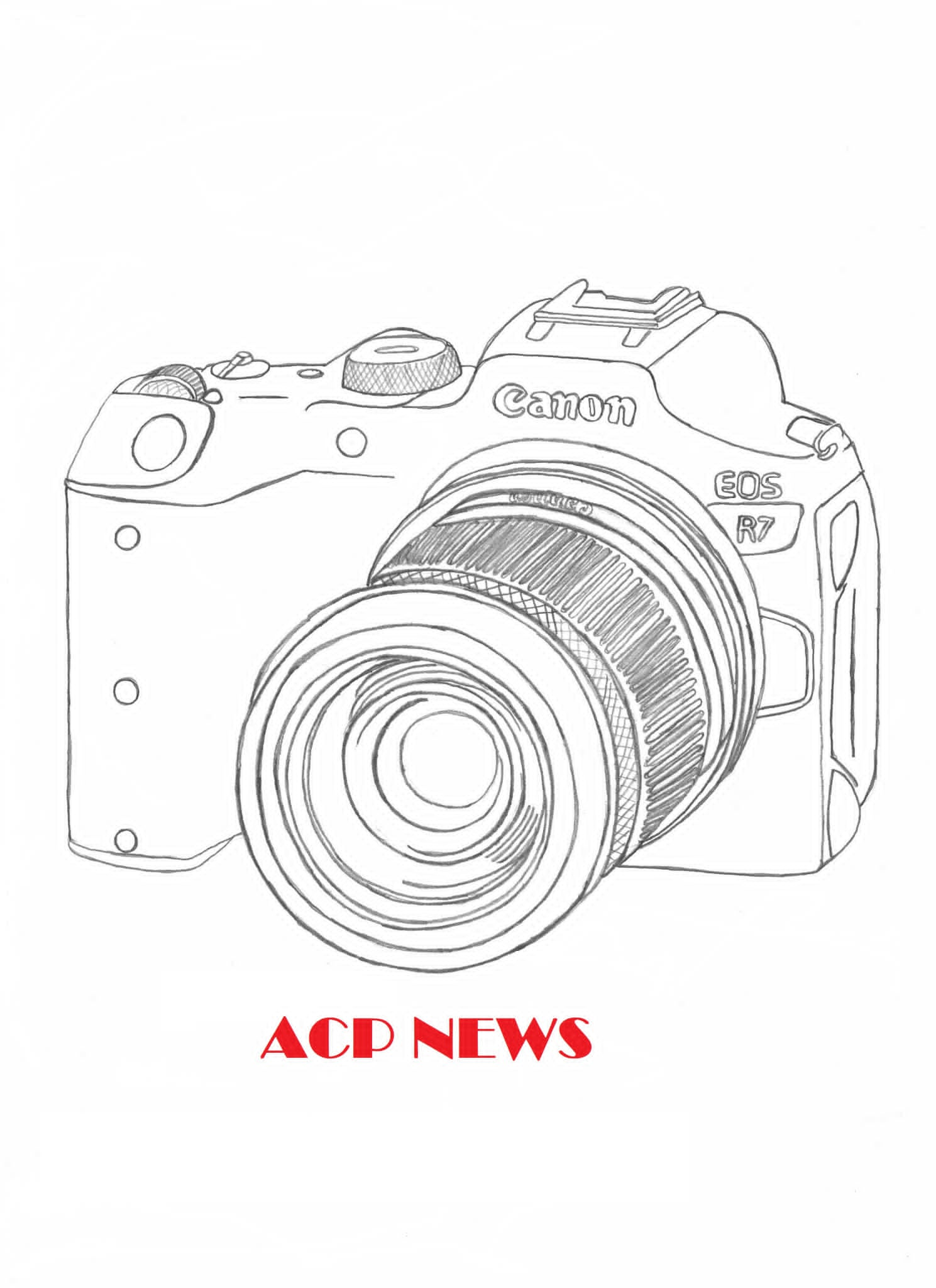
Courageous Patriots in Petticoats of the American Revolution
July 4th, 1776 Celebration
By Kenneth Hammontree
“Even in their dresses, the females seem to bid us defiance,” wrote a British soldier, as the American Revolution dragged on into the summer of 1782. “They take care to have on their breasts and even on their shoes something that resembles their flag of thirteen stripes.” A British soldier told Lord Cornwallis that he believed, if they would have destroyed all the men in North America, “we should have enough to do to conquer the women.”
These discouraged Englishmen had discovered the American Women, a female of the species as exceptional as the notion that citizens had the right and the ability to govern themselves without the benefit of royalty.
Schooled in a vast untamed wilderness of hardships and hazards, the women of Colonial America were conditioned to independence and initiative. Up at dawn, growing and preparing their own food, spinning and making their own clothing, and nursing their sick with medicines from their herb gardens and the forest apothecaries. Colonial women’s work was never done.
In 1774 fifty-0ne strong-minded ladies of Edenton, North Carolina, sent London a signed resolution renouncing all taxed tea. Other patriots in petticoats had set up tax defying groups. Many called themselves “Daughters of Liberty,” a gentler version of the often rough and ruthless “Son of Liberty.”
After the war broke out, the patriot women stood by their men. As the Revolution spread across the thirteen colonies, women of all classes, from work-worn frontier wives to mistresses of the great plantations, flung themselves into the revolution.
Here are just a few of these Patriots in Petticoats that assisted in winning the American Revolution:
Elizabeth Hager of Boston was also known as “Handy Betty the Blacksmith,” who was noted for repairing Rebel muskets and other weapons including British cannons. Her twelve children assisted their mother in winning the war.
Easter Reed of Philadelphia was the wife of Pennsylvania President Joseph Reed. She led a group of women alongside of Sarah Franklin, daughter of Benjamin Franklin, who raised enough money to make 2,500 shirts for Washington soldiers, and other items of clothing.
Abigail Adams of Boston was the wife of John Adams, who was one of the most outspoken of all the founding fathers. Abigail proved a potent weapon in the struggle for the freedom from England, by her many writings and articles for the American struggle, as well as keeping her husband abreast of events in British held Boston.
Mary Ludwig Hays of New Jersey, better known as Molly Pitcher In the history of battle, she became a camp follower of Washington’s army. During the intense heat of battles, she, along with other camp followers, would go from cannon to cannon carrying pitchers of water to the parched soldiers. Water was also needed to cool and clean the hot barrels of cannons between shots using a ramrod.
At the battle of Monmouth in 1778, Molly Pitcher was carrying water to soldiers, while her husband manned one of the cannons. When her husband collapsed from heat stroke, Mary took his place swabbing and loading the cannon. Hearing of her courage, General Washington commended Mary Hays, issuing her a warrant as a non-commissioned officer.
Phillis Wheatley of Boston who was once a slave, used her literary talents to criticize colonial tyranny. Taken from her home in Africa as a child, she was sold in 1761 to a benevolent Boston family who taught her to read and write and schooled her in the classics. Eventually the Wheatley family give Phillis her freedom and sent her to England for a higher education.
During her lifetime Phillis had the wonderful experience of meeting men such as John Paul Jones, Benjamin Franklin, George Whitefield and George Washington. On October 26th, 1775, she wrote to Washington, telling him of her support for the Revolution and enclosed a poem as a tribute praising Washington. He enjoyed her work so well that he invited her to his headquarters at Princeton, spending time talking and sharing his thoughts on the Revolution.
Agent 355 is the unknown woman, who was part of the little-known top-secret group called the Culper Spy Ring. Washington relied on these rings for important information on the British movements. Her name and fate have been lost to time and history.
We do know that she was captured and might have escaped imprisonment and gone on to live a long and happy life. Or she might have died somewhere in the British diseased-infested POW ships in New York harbor. We will never know.
Behind these women in the shadows, stand all those other Patriots in Petticoats, the nameless Founding Mothers, without whom none of the Revolution would have been possible.


